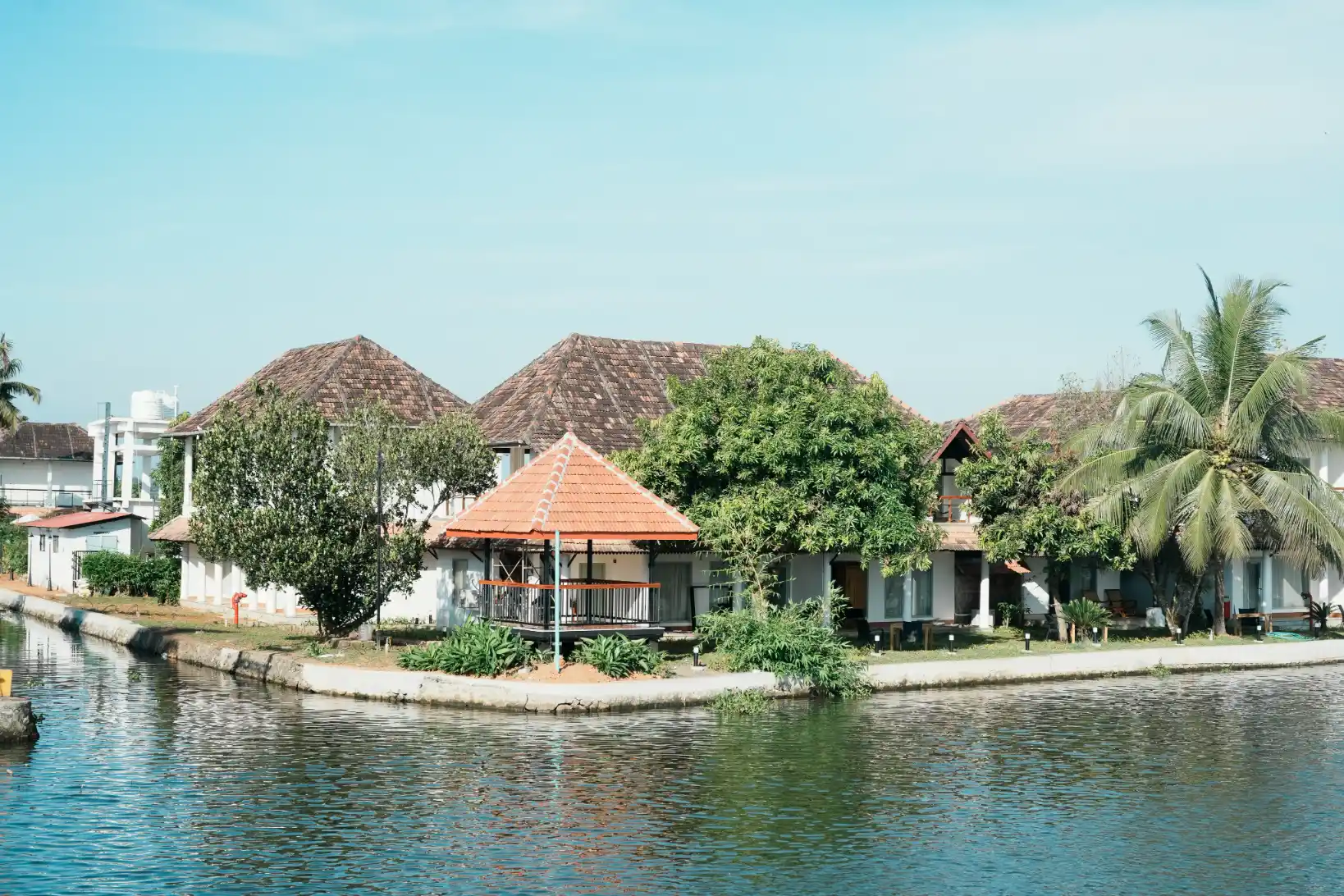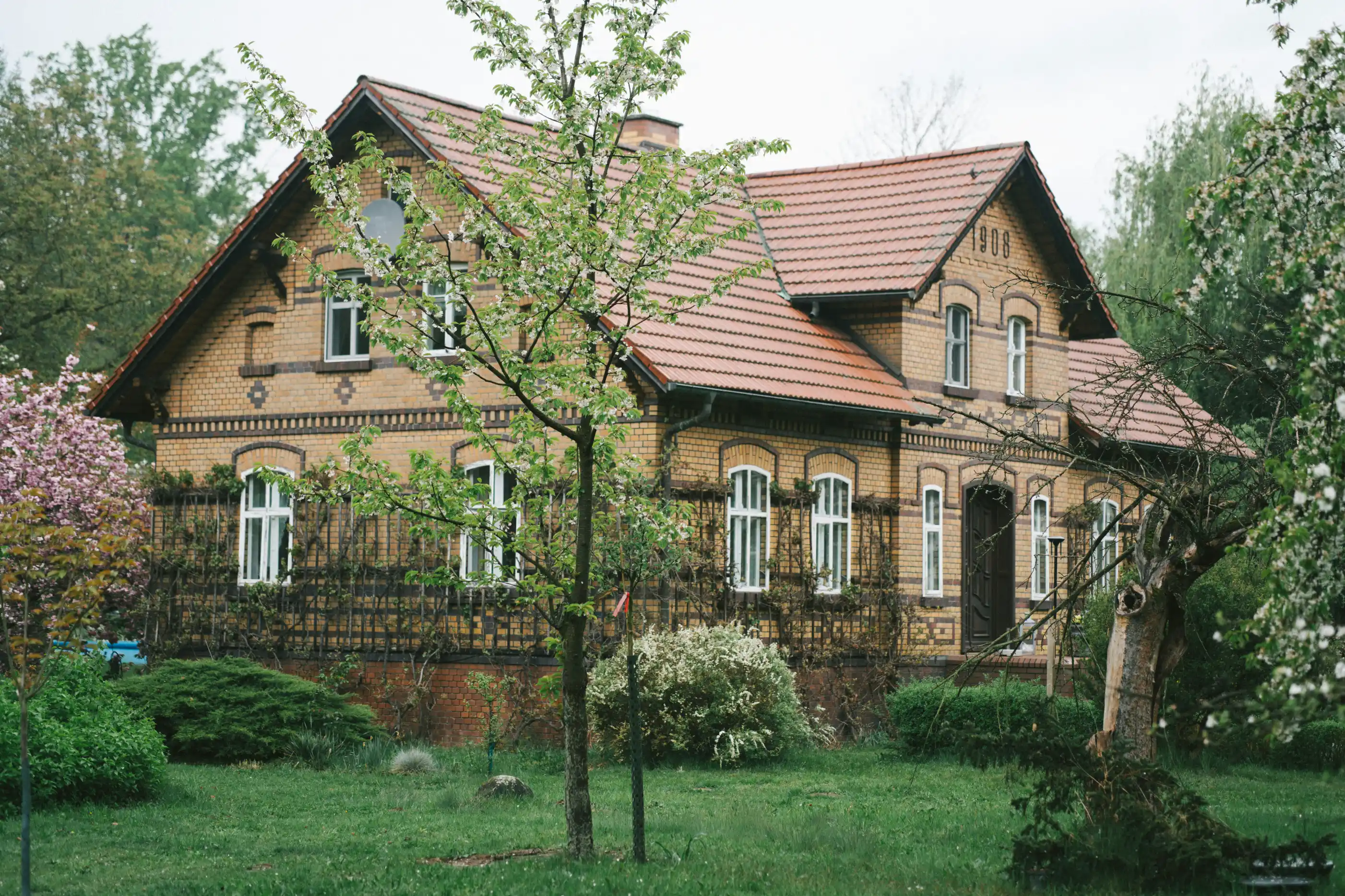Your Texas property could welcome vacationers and host unforgettable weddings, generating revenue from two streams. This vision isn't just a dream; it's an increasingly popular business model for savvy property owners across the Lone Star State.
This hybrid rental model combines the steady income of a Short-Term Rental (STR) with the premium rates of a private event venue, creating a profitable investment opportunity. Managing wedding venue rentals in Texas requires more than listing your property online and waiting for bookings.
This guide will walk you through managing wedding venue rentals in Texas, from legal hurdles to operational mastery. It will also show how specialized event property management unlocks your property's potential.
Why Hybrid Wedding & Vacation Rentals Work in Texas
Private properties offering a stunning ceremony backdrop and on-site accommodation for the wedding party are perfect. This shift has created unprecedented demand for distinctive venues that combine the intimacy of a private property with the amenities of a professional event space.
Texas leads this trend, offering advantages that make it a top destination for weddings and vacation rentals. The state's diverse geography, from the Hill Country's hills and vineyards to East Texas's woods and Galveston's charm, provides endless event backdrops. With Texas's hospitality, business-friendly regulations, and robust tourism economy, you have the perfect foundation for a hybrid rental property.
The Financial Upside
- Increased Revenue Potential: A standard vacation rental might command $300-500 per night, but wedding events can generate $5,000-$15,000+ for a weekend. This premium pricing, on top of your regular STR income, can double or triple your property's annual revenue.
- Filling the Gaps: The wedding and vacation rental markets complement each other. Weddings book weekends and plan months (even years) in advance, securing your prime dates at premium rates. Meanwhile, STR bookings fill weekday vacancies and capture last-minute travelers, ensuring consistent cash flow.
- Higher Property Valuation: A property with a proven, diversified income stream becomes more valuable. When it's time to sell, your wedding venue/STR hybrid will command a premium price based on its established business model and revenue history.
- Building a Brand: As your venue hosts successful events, it builds a reputation and brand recognition. Positive word-of-mouth and social media presence enhance your property's appeal as a vacation rental, creating a virtuous cycle of demand.
Challenges of Managing an Event Venue Rental
Running a hybrid venue is not as simple as listing your property on Airbnb and saying "I do" to event inquiries. It introduces a new layer of complexity that can overwhelm experienced property owners.
The legal framework for hosting commercial events on your property differs from standard vacation rentals. Many Texas counties and municipalities have zoning regulations determining the legality of hosting commercial events. Some areas require special permits, capacity limitations, or strict noise restrictions.
Insurance is another major hurdle. Standard homeowner's or STR insurance policies typically exclude coverage for commercial events. You'll need comprehensive event liability insurance, often $1-2 million in coverage, to protect yourself from the increased risks of hosting large gatherings.
Navigating the Texas Alcoholic Beverage Commission (TABC) regulations is daunting. Strict rules govern service, liability, and licensing that vary by county and carry severe penalties if violated, whether you provide alcohol or allow guests to bring their own.
Operational Overload
The operational demands of a wedding venue dwarf those of a typical vacation rental. A wedding can bring 100-200 people onto your property, each with different needs and expectations, while an STR accommodates 2-10 guests.
Post-event cleaning goes beyond a standard turnover. You're dealing with confetti, floral debris, spilled drinks, and high-traffic wear in rarely used areas during a typical STR stay. You'll need specialized cleaning crews and longer turnover windows between bookings.
Staffing requirements increase dramatically. While a vacation rental might be managed remotely, weddings demand on-site management, parking attendants, security personnel, and vendor coordination. Someone must ensure caterers, photographers, DJs, and other vendors follow house rules and timelines.
Marketing & Pricing Paralysis
Marketing to engaged couples requires different strategies and platforms than attracting vacation travelers. Wedding clients use specialized platforms like The Knot and WeddingWire, rely on recommendations from planners and photographers, and expect detailed information about capacities, restrictions, and event-specific amenities.
Pricing becomes exponentially more complex. How do you compare the value of a three-night family stay versus a one-day wedding? How do you account for the increased wear and tear, staffing costs, and utility usage of an event? Many property owners find themselves underpricing their venue, losing thousands, or creating confusing pricing structures that deter both types of clients.
5 Tips for Managing Wedding Venue Rentals in Texas
Navigating these challenges requires a strategic approach. Here are the five pillars of expert event property management that turn a beautiful property into a profitable, in-demand destination.
Tip 1: Navigating Texas's Legal & Regulatory Landscape
A successful wedding venue operation relies on compliance with all laws and regulations. Cutting corners is risky; it can be catastrophic for your business and finances.
Your first line of defense is insurance. Beyond standard property insurance, you'll need comprehensive event liability coverage, typically $1-2 million minimum. Many professionals recommend an umbrella policy covering event-related activities, including alcohol service, vendor operations, and guest injuries.
Your contracts must be ironclad and comprehensive. A professional event contract should outline cancellation policies, damage deposits, noise restrictions, and vendor requirements. It should detail client responsibilities regarding permits, alcohol service, and guest conduct. Avoid generic templates; invest in an attorney with venue experience to draft your contracts.
TABC rules depend on your business model. If your venue sells alcohol directly, you'll need appropriate licensing and trained staff. If you operate as a BYOB venue, you have host responsibilities and potential liability. Many successful venues partner with licensed bartending services that bring their own permits and insurance.
Local ordinances vary across Texas counties and cities. Some rural areas have minimal restrictions, while properties within city limits may face strict noise ordinances, parking requirements, fire code occupancy limits, and designated event zone regulations. Check with city and county authorities before launching your venue.
Tip 2: Mastering Dual-Purpose Operations
A seamless system for transitioning between event and vacation rental modes is the operational backbone of a successful hybrid venue.
The most challenging operational aspect is the Turnaround process. A Saturday night wedding ends at midnight, leaving behind damaged landscaping, scattered decor, and heavily used facilities. STR guests arriving Sunday afternoon expect pristine conditions. This flip requires a choreographed team approach with specialized post-event cleaning protocols, accelerated maintenance checks, and meticulous attention to detail.
Vendor Management is essential to protecting your property. Successful venues maintain a vetted list of preferred vendors who understand and respect your property's rules. Many venues require vendors to provide proof of insurance, sign agreements regarding setup/teardown procedures, and adhere to timelines. This quality control ensures third parties don't damage your property or create liability issues.
On-Site Presence is non-negotiable for events, regardless of your STR management style. Large gatherings need active management, someone to direct parking, address noise, manage timelines, and handle unexpected situations (like weather changes or medical emergencies). Remote owners learn that weddings can’t be supervised via security cameras or phone calls. Professional on-site management protects your property and ensures smooth events.
Tip 3: Strategic Marketing for Two Audiences
Success in the hybrid model requires sophisticated dual-channel marketing that speaks distinctly to each audience without creating confusion.
Marketing to Couples:
- Platform selection is crucial. Wedding-specific sites like The Knot, WeddingWire, and Here Comes The Guide attract motivated couples with dedicated venue budgets.
- Instagram and Pinterest are essential visual platforms where stunning venue photography captures attention and inspires bookings.
- Relationship marketing generates your highest-quality leads through partnerships with local wedding planners, photographers, and caterers.
- Content should focus on the emotional experience of your venue, the magical ceremony spot, romantic lighting, and perfect photo opportunities while clearly communicating capacity, amenities, and pricing packages.
Marketing to Travelers:
- Your primary channels remain traditional STR platforms like Airbnb, Vrbo, and direct booking websites.
- When marketing the same property for vacation stays, emphasize different features: comfortable bedrooms, kitchen amenities, relaxation areas, and local attractions.
- Be transparent about the property's dual use while highlighting the benefits, such as beautiful grounds and enhanced amenities not available at a standard rental.
- To maintain strong STR occupancy alongside your premium event bookings, consider lower rates during peak wedding season.
Successful hybrid venues maintain separate websites, social media accounts, and business names for their wedding and vacation rental operations. This allows for targeted messaging while maintaining operational integration.
Tip 4: The Art & Science of Hybrid Pricing
Maximizing revenue in a dual-purpose property requires sophisticated pricing strategies that account for each booking type’s unique value and associated opportunity costs.
Event Pricing isn't calculated like nightly accommodations. Wedding venue fees start with a base package for exclusive property use for a specified period (often 8-12 hours or a full day). This base rate varies depending on the day and season; a Saturday in May might command $8,000-$12,000, while a Monday in January might be half that. Additional fees apply for extended hours, higher guest counts, specific amenities (like a bridal suite or catering kitchen), and optional services.
STR Pricing requires sophisticated dynamic pricing that adjusts nightly rates based on seasonal demand, local events, day of week, and booking windows. Unlike fixed wedding package rates, vacation rental pricing fluctuates daily based on market conditions and competition. Professional management companies use specialized software that analyzes market data to optimize rates and maximize revenue without sacrificing occupancy.
Calendar Management becomes the critical intersection point. Your booking system must block appropriate preparation and recovery time around events while maximizing STR availability. For example, a Saturday wedding requires blocking Friday for setup and Sunday morning for cleanup, but allows a Sunday afternoon check-in for vacation guests. This calendar tetris impacts your bottom line.
Tip 5: Designing a Space that Wows Everyone
The physical design of your property is critical in serving both markets. A well-designed hybrid venue requires expert interior design that balances aesthetics, functionality, and durability.
Durability and style must coexist. Furnishings need to be photogenic for wedding portraits yet durable for heavy use. This often means investing in commercial-grade items with residential aesthetics, washable slipcovers, stain-resistant upholstery, and high-quality outdoor furniture that can withstand weather and wedding guests.
Photogenic "Moments" throughout the property increase its appeal to both markets. A beautiful stone fireplace, a statement staircase, a flower-covered pergola, or a stunning water feature can become the centerpiece of wedding photos and vacation rental marketing. These Instagram-worthy spots create emotional connections with potential clients and inspire bookings.
When designing for dual purposes, functional flow considerations are essential. The property must accommodate the logistical needs of large events, catering prep areas, vendor loading zones, guest parking, accessible restrooms, while still feeling intimate and welcoming for vacation guests. Smart layout decisions, like creating multi-functional spaces that can transform from ceremony sites to outdoor dining areas, maximize your property's versatility.
Why Specialized Venue Management Matters
Managing a wedding venue rental in Texas is a full-time, expert-level job. It's more than standard property management; its comprehensive event and hospitality management. A specialized partner is essential.
How Surge Solves the Hybrid Venue Challenge:
- Integrated Design & Management: We don't just manage; we create. Our in-house design team builds your property to be a high-end, durable, and photogenic destination from day one.
- Local Texas Legal & Vendor Expertise: Forget navigating TABC rules and county ordinances alone. Our local teams understand the Texas landscape and have a pre-vetted network of top-tier event vendors.
- Sophisticated Revenue Management: Our dynamic pricing engine and event package expertise ensure you maximize revenue from weddings and STR guests, with a unified calendar that eliminates conflicts.
- Hands-Off Operations: Our full-service property management handles 24/7 guest communication, event-day oversight, and post-event turnover. You get the income without the headaches.
- Performance-Aligned Partnership: Our success is your success. We are motivated to make your property the top destination with a performance-based fee and no long-term contracts.
Conclusion:
Owning a hybrid wedding and vacation rental property in Texas represents an exciting investment opportunity in today's real estate market. The combination of premium event rates and consistent STR income creates revenue potential that exceeds traditional rental models. While the challenges of legal compliance, operational logistics, and dual-market positioning are substantial, they can be overcome with strategic planning and expert execution.
Don't leave potential revenue on the table or risk the headaches of self-management. Let Texas experts turn your property into a thriving, dual-purpose business. Schedule a free consultation with Surge to discover your property's potential.
FAQ
What insurance do I need for a wedding venue in Texas?
You'll need STR insurance and a robust event liability policy with at least $1 million coverage. Work with an insurance professional to ensure no coverage gaps.
Can I manage an Airbnb wedding venue myself?
It's extremely demanding and requires expertise in event coordination, vendor management, Texas regulations, and dual-channel marketing. A specialized manager like Surge saves time and generates higher net revenue by avoiding costly mistakes.
How much can a hybrid wedding/vacation rental make in Texas?
Revenue varies by location, size, and amenities. Top-tier properties can significantly outperform standard vacation rentals by combining peak-season wedding bookings (which can bring in $10k+ per weekend) with consistent STR income.





